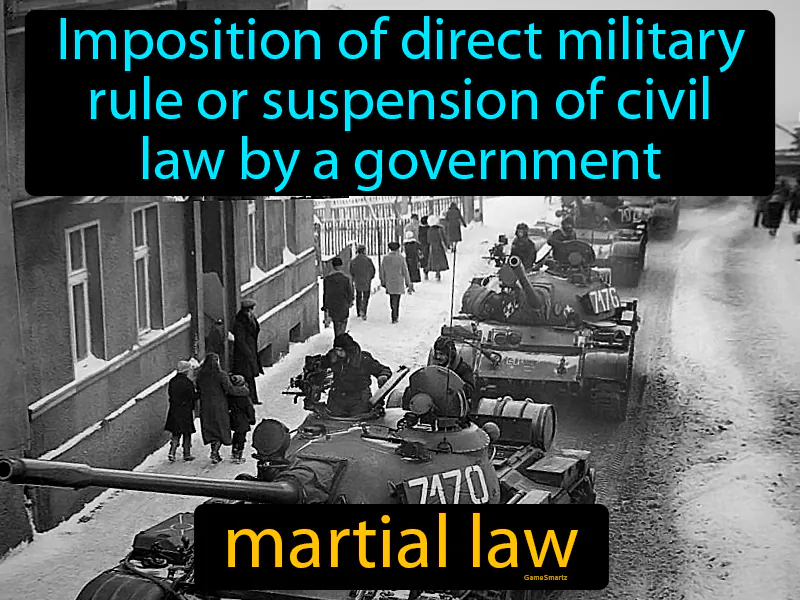Martial Law

During the Spread of Independence, martial law was often imposed by colonial powers to maintain control over regions seeking freedom, like in India or the American colonies. It was used to suppress uprisings and enforce order when civil unrest threatened the government's authority. This concept was important because it highlighted the tensions between people's desire for self-governance and the rulers' need to maintain control. Today, martial law can still affect people during times of national emergencies or disasters when governments might suspend regular laws to restore order quickly. For example, after a natural disaster, a government might declare martial law to prevent chaos, ensuring safety and essential services for citizens.
Practice Version

Martial Law: Imposition of direct military rule or suspension of civil law by a government. Martial law. Historically, martial law is when the military takes over control from civilian authorities, usually during emergencies.